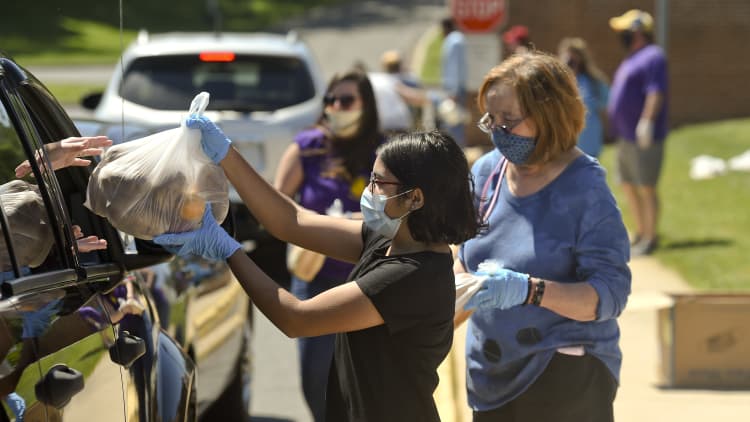Governments and business leaders pledged $8.8 billion on Thursday to a vaccine alliance backed by the Gates Foundation.
The money was raised at the Global Vaccine Summit, hosted by British Prime Minister Boris Johnson, with funds going toward global vaccine alliance Gavi's efforts to immunize children amid the coronavirus crisis.
Among the donors was The Bill & Melinda Gates Foundation, which pledged $1.6 billion to the organization it helped establish two decades ago.
In an announcement at the summit, Bill Gates said the funds would be a five-year commitment to support Gavi's efforts to vaccinate children in the world's poorest countries.
The Gates Foundation also committed to donate a total of $100 million to Gavi's efforts to purchase Covid-19 vaccines for poorer countries, building on an initial pledge of $50 million made by the foundation in May.
Speaking at the summit on Thursday, Gates said the world was witnessing a "unique time in history," claiming that "never have more people been more aware of the importance of vaccines."
"Since its inception Gavi has helped vaccinate more than three-quarters of a billion children … And now, it's stepping up and saying it's willing to deliver a Covid-19 vaccine as soon as one is available to end the pandemic as soon as possible," he said.
"If we didn't already have Gavi, we would have to create it just to solve this crisis," he added. "It's the largest single investment we make, and one of the best we have ever made."
Thursday's event, which initially aimed to raise at least $7.4 billion for Gavi, was attended virtually by leaders and representatives from more than 50 countries, as well as heads of private companies.
The funding from the Gates Foundation will be bolstered by a string of monetary pledges made at the summit on behalf of governments around the world. Those included $20 million from China between 2021 and 2025, $56.5 million from Spain over the next five years, $1 billion from Norway and $2 billion from the United Kingdom.
French President Emmanuel Macron pledged to donate 500 million euros ($565.9 million) over the next five years, as well as a further 100 million euros if an effective Covid-19 vaccine was found, while the European Commission pledged 300 million euros to the organization.
Gavi will use the money to immunize 300 million children in the world's poorest countries by 2025.
The organization was set up in 1999 when the Bill & Melinda Gates Foundation pledged $750 million to help establish it. During the coronavirus crisis, Gavi has been providing essential medical supplies to those in need and working to increase global Covid-19 testing and tracking initiatives.

At least 133 potential Covid-19 vaccines are being researched and developed around the world, according to the World Health Organization. If an effective vaccine is developed, Gavi will assist in its global distribution.
Funds raised on Thursday are intended to help ensure a recovery from the Covid-19 pandemic, with health experts warning that further spikes in infection could be seen in wealthy countries if the virus is left to spread in developing nations.
Ensuring people are immunized against diseases like measles, polio and typhoid also reduces the burden on health-care systems in poorer countries, which are coming under pressure amid the coronavirus crisis.

